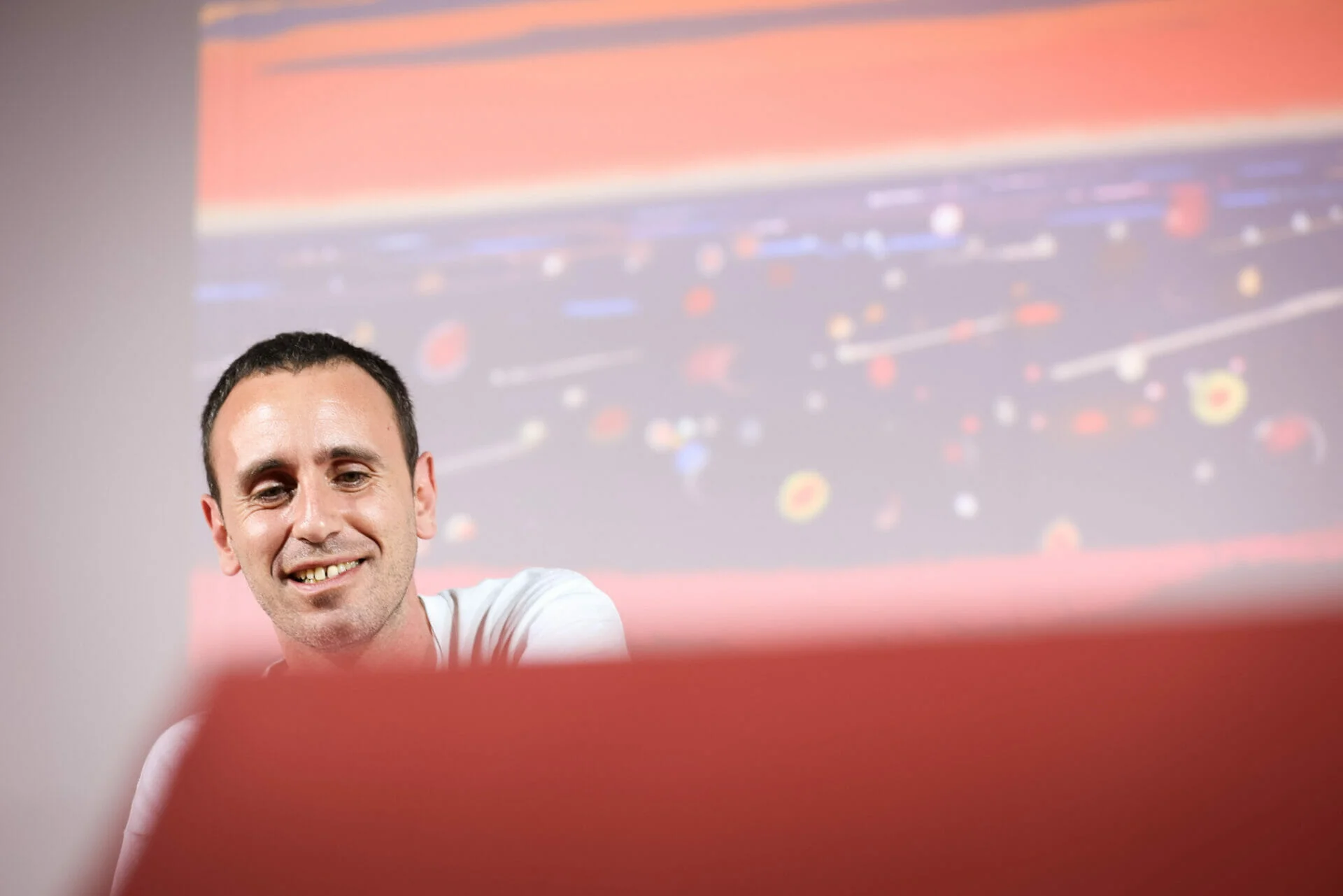
What catches the eye of Zerocalcare‘s style is how much he uses his private life to create stories. He manages to express universal meanings just by telling about events from his biography. The protagonist is always a stylized version of himself, accompanied by a huge armadillo that represents his conscience. Using his continuous interior monologues and a mix of irony and self-doubt, he explored different periods of life, from childhood to adulthood. On some level, all his works could be considered a sort of survival manual. Each graphic novel takes on a different phase of life, exploring the conflicts and issues it entails. They’re like guidebooks on how to live in a world where it often seems impossible to attain any certainty and assurance.
The pseudonym Zerocalcare is inspired by a popular anti-limescale advertisement (“calcare” means limescale in Italian). It somehow sums up the main elements of the cartoonist’s style who choose it, Michele Rech: a down-to-heart approach to storytelling and themes, loads of quotes from pop culture, the core of ‘80-’90s generations, grown-up absorbing whatever passed on TV.
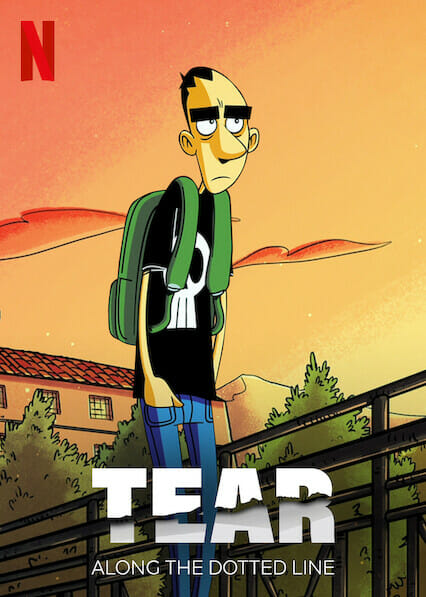
A few words about Michele Rech
Before becoming a comics artist, Zerocalcare, who was raised in France before moving to Rome, hadn’t much of a clue about what to do with his life. He lingered in that unsettling limbo between university and adulthood, a condition shared by many young people in the last decades. In the meantime, though, he was transferring the discomfort he felt into comics since high school. They were brief comic strips, published on his private blog (there was no Instagram profiles to share your work yet by then). However, those comic strips talked to people, a lot. They spoke to generations that felt clueless as much as Zerocalcare. When his first book came out, a collection of those short stories, it was an immediate success. The Prophecy of the Armadillo, in 2011, sold more than 200.000 copies.
From that moment on, Zerocalcare’s career in comics reshaped the public perception of graphic novels in Italy. People that considered comics stuff for children or niche products started to realize they were a growing market share and a powerful art form.
The crippling feeling of tentacles at your throat
This constant sense of uncertainty is the essence of what he writes. Below Zerocalcare’s ironic and parodistic style, lays a wound. One graphic novel after the other, he always tries to deal with it. The kind of wound Zerocalcare talks about can’t ever be properly healed, just momentarily patched up. Throughout his works and the several stages of life they tell, it takes different forms, but it’s always there. From this point of view, Tentacles at my throat isn’t just the second graphic novel by Zerocalcare. It represents the foundation of all his stories, for it tackles the unresolved issues people suffer since their childhood.
In this first long-form comics, the wound takes the shape of a lie to a close friend. Zerocalcare is still a child. To avoid being punished at school, he puts the blame for something he has done on his friend Sarah. Unable to confess the truth, he says that another kid snitched on her. Thus, remorse takes a grip on his throat, literally in the form of a black, imaginary octopus.
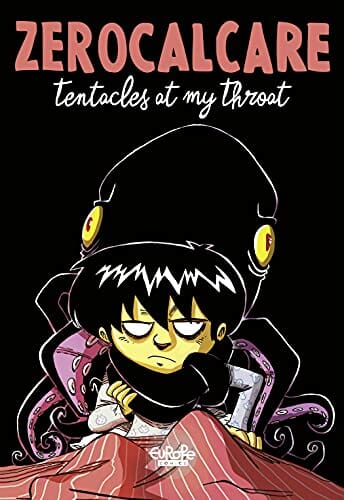
What shame can do
The whole comics could be considered an analysis of shame. It’s a feeling capable of moulding one’s perspective on themselves and other people. From child to adult, Zerocalcare keeps on feeling the weight of inexcusable guilt. He trembles thinking about Sarah finding out the truth. And finally manages to confess when the stakes are below zero, many years later. Only to find out she doesn’t care anymore. Of course, what would have mattered the world to a couple of children, be it reputation at school or petty, little secrets, loses any actual meaning as time goes by.
The fact the protagonist takes years to get rid of this shame, conveys the idea of how much one can be stuck in their past. After all, as the school teacher says, nobody recovers from their childhood.
Zerocalcare represents being a child as a merciless condition, where personalities in the making struggle to find their own place. A wrong move at eight can have consequences on a whole life. However, this depends also on how someone interprets what happens, and how much weight they give to it. Sometimes the guilt is right and consistent with the fault, like a character shows in the end. Most of the time, though, people tend to exaggerate the consequences of their actions, living in anguish just out of self-doubt. In both cases, the best option is to let the truth come out, instead of doom yourself to perpetual and inner shame.
Leaving your past behind: Skeletons
We’re all worried about our skeleton in the closet. We keep it hidden in there, it becomes an obsession as if it was a stain on the white shirt of our life. Meanwhile, we don’t acknowledge – or we pretend we don’t – that all our existence… is built on a fucking mass grave.
Skeletons, Zerocalcare
Skeletons follows the theme of Tentacles at my throat on the weight that lies have on one’s mind. A young Zerocalcare wants to leave university, where he feels out of place. However, he struggles to tell his mother out of fear of disappointing her. So, he just rides the underground for the whole morning, reading and waiting for the time to pass. There, he meets Arloc, a 16-year-old boy who is also avoiding school by pointlessly riding the underground.
As Zerocalcare includes Arloc in his group of friends, he also gets to know some hard-to-swallow attitudes the boy has. Arloc’s violent tendencies bring him and Zerocalcare into dangerous situations. This eventually leads to one of their friends getting hurt and the group temporarily being broken up. Zerocalcare finds out that Arloc’s behavior is heavily influenced by the background in which he lives, filled with hatred, sexism, and violence. He doesn’t believe this justifies him, though. Thus, time goes by and Zerocalcare and Arloc go separate ways. However, all that happened keep on weighing on all the characters. Trauma transforms into a skeleton in the closet, which will always make it hard to move on. Therefore, when Arloc shows up again, claiming to be a different person, Zerocalcare finds it hard to believe him.
No one is really left behind
Getting rid of those skeletons, though, is the only way to move further. Eventually, it is also a way to find your path. Once more, Zerocalcare’s characters feel left behind by their peers. The sensation of being stagnant was also explored by Teresa Radice and Stefano Turconi in The Forbidden Harbor, in which people who feel lost in life end up at the same harbor.
In Skeletons, Zerocalcare leaves university because he feels inadequate, and twenty years later he ghosts his friends for the same reason. However, the point is not what you do, but understanding everyone has a different path in life. It makes little sense to feel left behind when no one is either ahead or behind you.
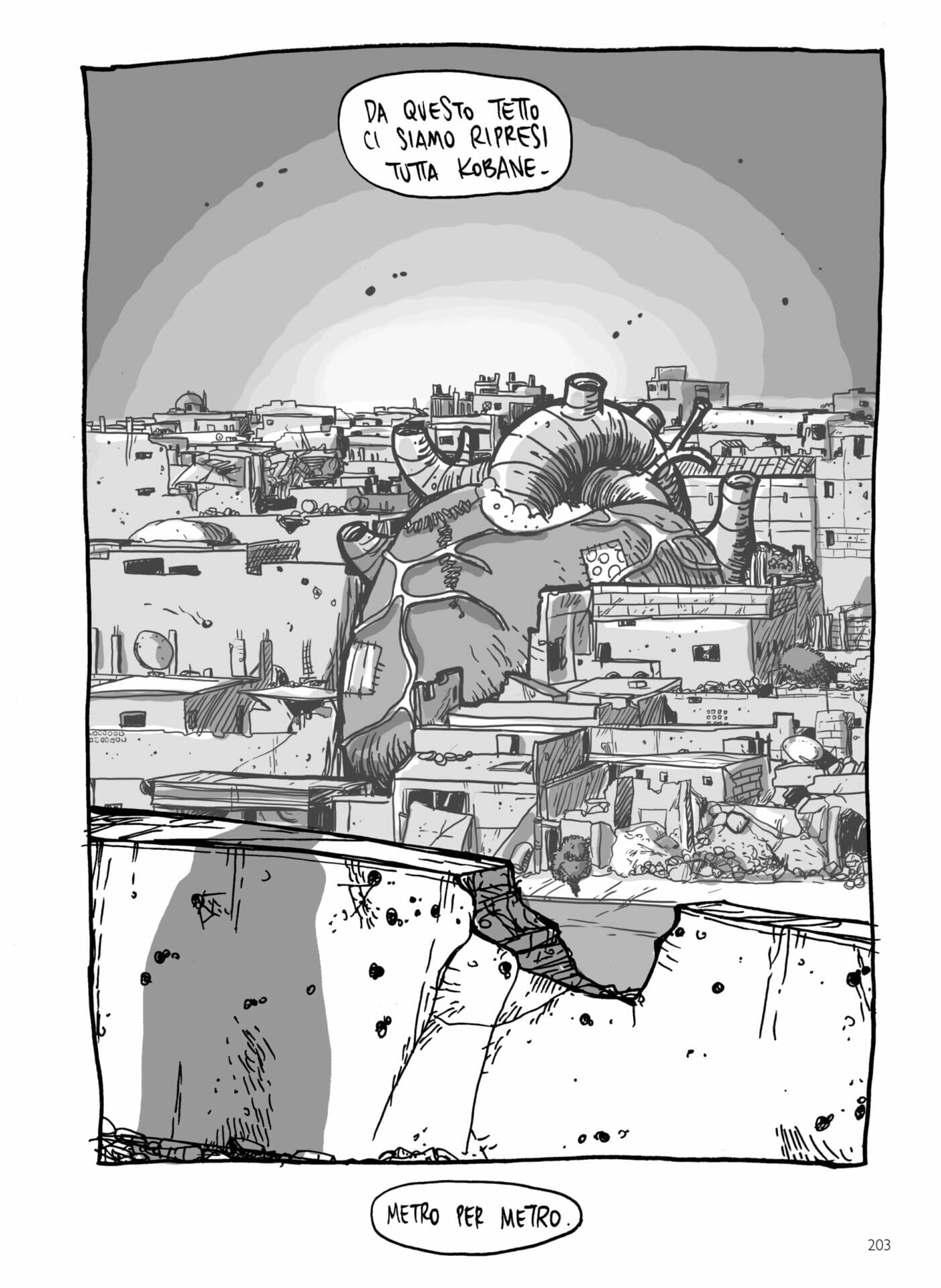
The sense of “raw debris”
After childhood and youth, Zerocalcare talks about crossing the threshold of adulthood. It’s a time of crossroads, choices, and responsibilities to take. Most of all, it is about looking in the mirror, deciding what path to take and what person to become.
The title of the two-volumes series Macerie Prime is a word game. It could be translated as “Raw Debris”, as in raw materials. The ground idea is that the latest generations live in a world devoid of solid references. They mostly see debris around them and, when it comes to make a living, they can only build on rubble. The result is an eccentric patchwork, made of everything one can deem useful, like Adventure Time show in a delirious and fantasy-oriented way.
Generations at loss…
Within this harsh context, Zerocalcare tackles the delicate balance of both taking care of others and of himself. He struggles with all the things people ask him to do, making him feel miserable if he refuses. At the same time, though, he feels guilty because his work often takes him away from his friends. Conflict breaks out when his own friends are the ones to ask him a favor. They want to participate in a call for proposals, hoping to better their professional situation. Differently from the author, by then a famous cartoonist, they all strive to make a living. Zerocalcare accepts to participate in the call, even if reluctantly.
Each of the author’s friends stands for a specific conflict. One is stuck and can’t imagine his own future, another is scared by lifelong responsibilities. They all find it hard to picture themselves as adults. The world they lived in never prepared them for this, like it would have been a sudden and magical change.
Moreover, it’s also and mostly the external context that keeps them stuck in a never-ending youth. Work expectations are frustrating, the salaries mocking. As shown in Nomadland, people are forced into extreme conditions and cannot build their own life even if they wanted to. Sarah’s example is iconic. Much more than the others, she has a clear idea of her life goal: becoming a teacher. Despite her efforts, though, she can’t reach it. She is stuck in a job she hates, while she still lives with her family.
…and where to find help
Zerocalcare represents all this frustration in the form of fictitious demons who preys on his and his friends’ weaknesses. Be it the demon of irreversibility or the one of stillness, the author uses them to represent the major conflict of each protagonist. These demons take away an inner part of the characters, be it trust, hope or patience. They embody the harshness of life, which also wears out relationships, pushing people away.
Throughout the story, the issues of all characters clash, to the point where Zerocalcare pulls himself out of the call for proposals. His inner voice, the armadillo, is replaced by a careless panda who wants to teach him a hard lesson. Growing up means caring mostly about yourself and the least possible about others.
Here lies the core of this miniseries. Life can be a disaster. The present time is challenging, it forces people into uncomfortable situations from multiple points of view. Sometimes, it even makes one envious of their friends and hopeful that they might fail altogether. Zerocalcare, though, wants to point out that becoming an adult isn’t about this. The point is not to become careless about others, focusing only on yourself. Growing up means finding a balance between private life, personal goals and relationships with others. Most of all, these relationships are the only thing that can help people when everything else seems to go wrong. They all learn this the hard way, risking losing a common friend. But they clear their mind just in time to give their support and understand that caring about each other is the best way to live in a world built on debris.
The center of the world: Kobane Calling
We all had to see many horrible things in this war. The only thing that saves us is to remember the meaning of what we’re fighting for.
Kobane Calling, Zerocalcare
In Kobane Calling, Zerocalcare attempts something different from his usual works. This 2015 comic book features the tale of Zerocalcare’s travels to Turkey, Syria, and Iraq. The goal is to talk about the conflict between Islamic State militants and Kurdish fighters, interchanging historical notes with personal accounts.
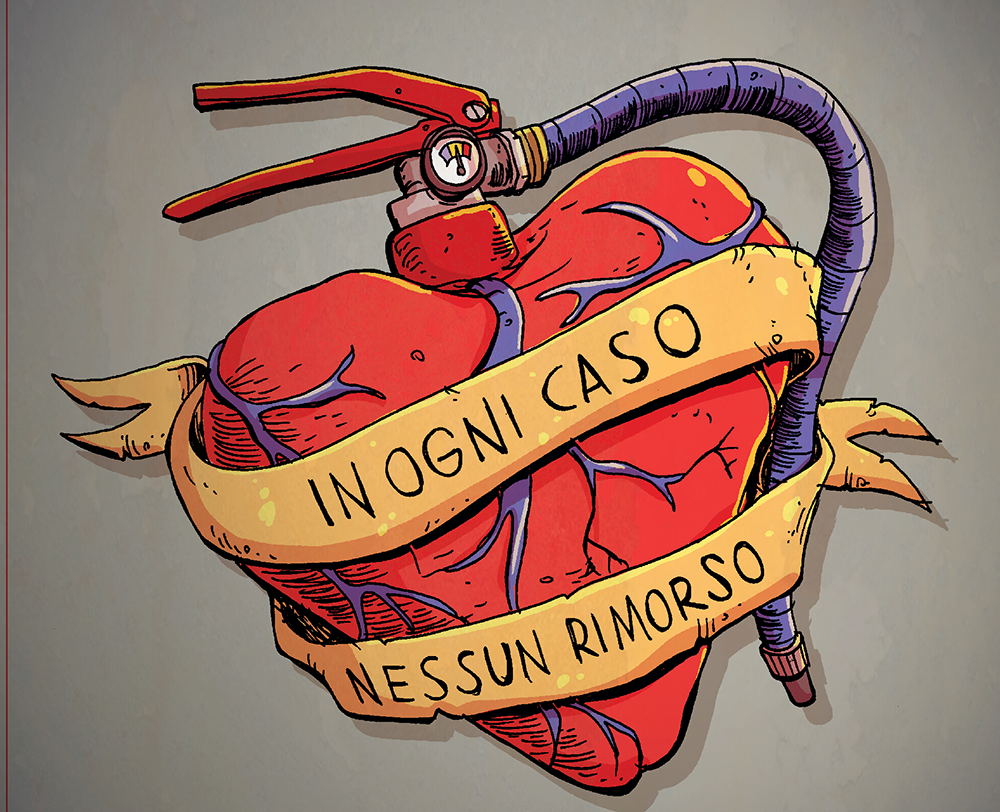
However, this is not a first in Zerocalcare’s world: he has always been close to sociopolitical struggles. He started writing comics during high school, after he moved to Rebibbia – a Rome district that he often mentions in his works – from France. His first comic strip was about the Genoa G8 protests, a protest in which he personally took part. A topic he recently explored in Nessun Rimorso too, along with other artists.
In these works with clear social implications, Zerocalcare gives voice to the need of feeling involved in the world. The necessity of the newest generations to make their disappointment heard is something Zerocalcare cares to express. To give a voice to each person, he saves several pages of Kobane Calling to telling the stories of individual people. He also talks about the need to help, to be involved in the major struggles our society is affected by. In a way, it’s the desire to move from the outskirts of the world to its center. A desire that recently emerged in the public’s overwhelming support for Ukraine during Eurovision 2022.
Ten years of Zerocalcare: from The Prophecy of the Armadillo to Tear Along the Dotted Line
After all, there were other clues that our lives had been built on rather shaky foundations. So we moved slowly because we thought that as long as you tore along the dotted line, life would take the right shape.
Tear along the dotted line, Zerocalcare
Ten years distance The prophecy of the armadillo from Tear along the dotted line, respectively the first graphic novel and the first animated show by Zerocalcare. They both stand out as a sort of summary of his work. The suicide of an old friend is at the center of either story, as much as the feeling of anguish caused by occasions lost forever. They are stories about and for bewildered people who find it hard to make up their minds about the future, dreams, and reality.
For the protagonist, finding out about the suicide is a complete shock. Not just because of the loss. Like in Skeletons, Zerocalcare had thought that he was the only one who strayed from the linear path of his life. This “dotted line” that he could not manage to tear along has actually been missed also by his friends, who are far from having their life all figured out. Everyone feels lost, without guidance, and far from true accomplishments. Zerocalcare here echoes Macerie Prime, underlining the importance of relationships, the fire that keeps these struggles from becoming overwhelming.
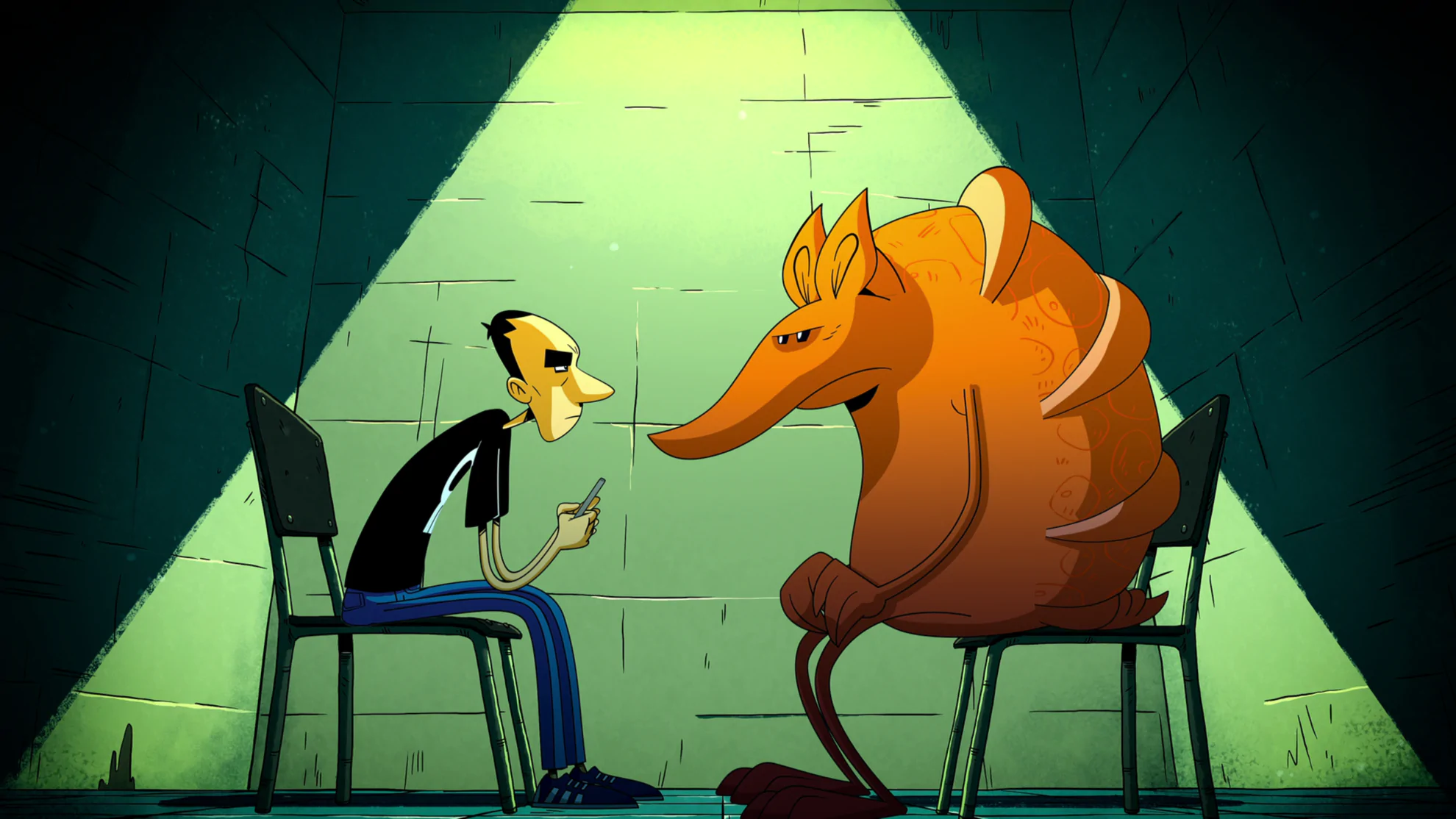
Dealing with lost opportunities
The author explores the feeling of loss that comes from not having confessed his feelings to his old friend. The two stories go over many moments in which he had the occasion to be open about it, but he always pulled back out of fear, or thinking that the right moment would come later. Zerocalcare’s overthinking tendency is seen in all its flaws, concerning both the lost occasions and the view of life as a linear path that everyone is supposed to follow. Once again, he deals with a wound, here made of regret out of what he didn’t do. What he didn’t manage to do, though, can be a launching pad for becoming a different person. What’s essential is acknowledging and learning from the mistakes of the past, instead of lingering on them.
Zerocalcare has been writing comics for ten years now and already has a legacy of his to pass on. From different perspectives, within different contexts, he tries to understand how one can find a place in this hectic world. His works touched the heart of many because they manage to go straight to the main issues of our time. Like Zerocalcare always ends up understanding the value of his relationships and bonds to keep on, the reader feels something similar. They feel less alone because they find an author capable of expressing uncomfortable matters. And, maybe, even showing a path toward a solution.





